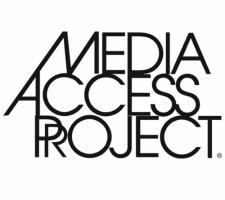BOB GARFIELD: Scandals and presidents of the United States and illicit rocket launches have no trouble getting the attention of the press and the public. Not every important story is so explosive, however, or titillating. Lurking inside the Beltway at all times are countless public interest advocates who devote years and sometimes entire careers with a single-minded purpose verging on obsession. Their efforts are emphatically un-titillating, yet they can influence the society in ways far beyond the headlines of the moment. We’ll speak with two such fixtures right now.
One is Andrew Schwartzman, policy director of The Media Access Project. For almost 40 years, MAP has advocated on behalf of consumers in the areas of media diversity, freedom of expression and universal communication access, often clashing with the big media conglomerates and the FCC. But now the funding well has run dry, and the non-profit public interest group is calling it a day. Schwartzman, who has himself been slinging stones at Goliath for more than 30 years, says MAP has never been the sexiest cause in town.
ANDREW SCHWARTZMAN: MAP has always been a particularly hard sell because we focused on inside-the-Beltway legal representation at a pretty high level. That doesn’t mean that stuff isn’t important, but it’s been hard to fund.
BOB GARFIELD: Would it be fair to say that the big bogeyman for the Media Access Project over the years has been media consolidation by a handful of gigantic corporations who own so many of the broadcast properties, radio and TV and, at least until recently, newspapers, as well.
ANDREW SCHWARTZMAN: Two times now the FCC has tried to relax its broadcast ownership rules, and we’ve successfully taken them to court to preserve those rules.
BOB GARFIELD: It seems to me that in some respects you and others in the public interest world actually failed in fighting the consolidation of media into corporate ownership. But you’ve had some remarkable victories.
ANDREW SCHWARTZMAN: Well, certainly, one of the things that we looked to was our work in creating low power FM radio service. This is an important way to empower minority communities, empower small areas of interest and an incubator to bring people into journalism, get them involved in the process of influencing public opinion.
BOB GARFIELD: And in interest of full disclosure, one of the media titans who actually was fighting against you in the battle for low frequency FM?
ANDREW SCHWARTZMAN: Well, we had to fight the broadcasting industry, and that includes NPR, which gave us a very hard time. NPR was concerned about interference, and we have always thought that NPR should have embraced low power FM as a kind of farm team system that would help create new talent, rather than something to be feared.
BOB GARFIELD: Now, you haven’t been around quite as long as the Washington Monument, but – damn near. You started in the Carter administration. That’s a lot of administrations ago. Were there any that were particularly sympathetic and particularly obstinate?
ANDREW SCHWARTZMAN: Well, I would certainly say that the Reagan years were the most difficult. The FCC chairman during the Reagan years, Mark Fowler, was an inveterate deregulator, and he was very good at what he did. He was a formidable foe. Frankly, even under Democratic administrations, the FCC has not always been sympathetic. It’s very hard to be heard when you don’t have the kind of resources that the big industries had. So it hasn’t always been easy, even when there’s been a more sympathetic FCC.
BOB GARFIELD: With all of the ebb and flow of regulation and regulatory philosophy over the years, do you think that we’re better regulated with respect to media in 2012 than we were when you got started back in ’78?
ANDREW SCHWARTZMAN: One of the interesting things that’s made this job so much fun is that it’s technology driven. And the challenge for the regulatory process under all kinds of administrations is coping with the change in technology. I think that taking into account all of those changes, the policymaking process is more responsive to the public than it was at that time. And the fact that there’s a robust public interest community that has developed gives me optimism that things will continue to get better.
You couldn’t do this for 34 years if you were not an optimist. And I’m an optimist. We’ve made things a lot better.
BOB GARFIELD: Andy, once again, thank you very much, and all best of luck.
ANDREW SCHWARTZMAN: Thank you, Bob.
BOB GARFIELD: Andrew Schwartzman is senior vice president and policy director for the soon-to-be former Media Access Project.

